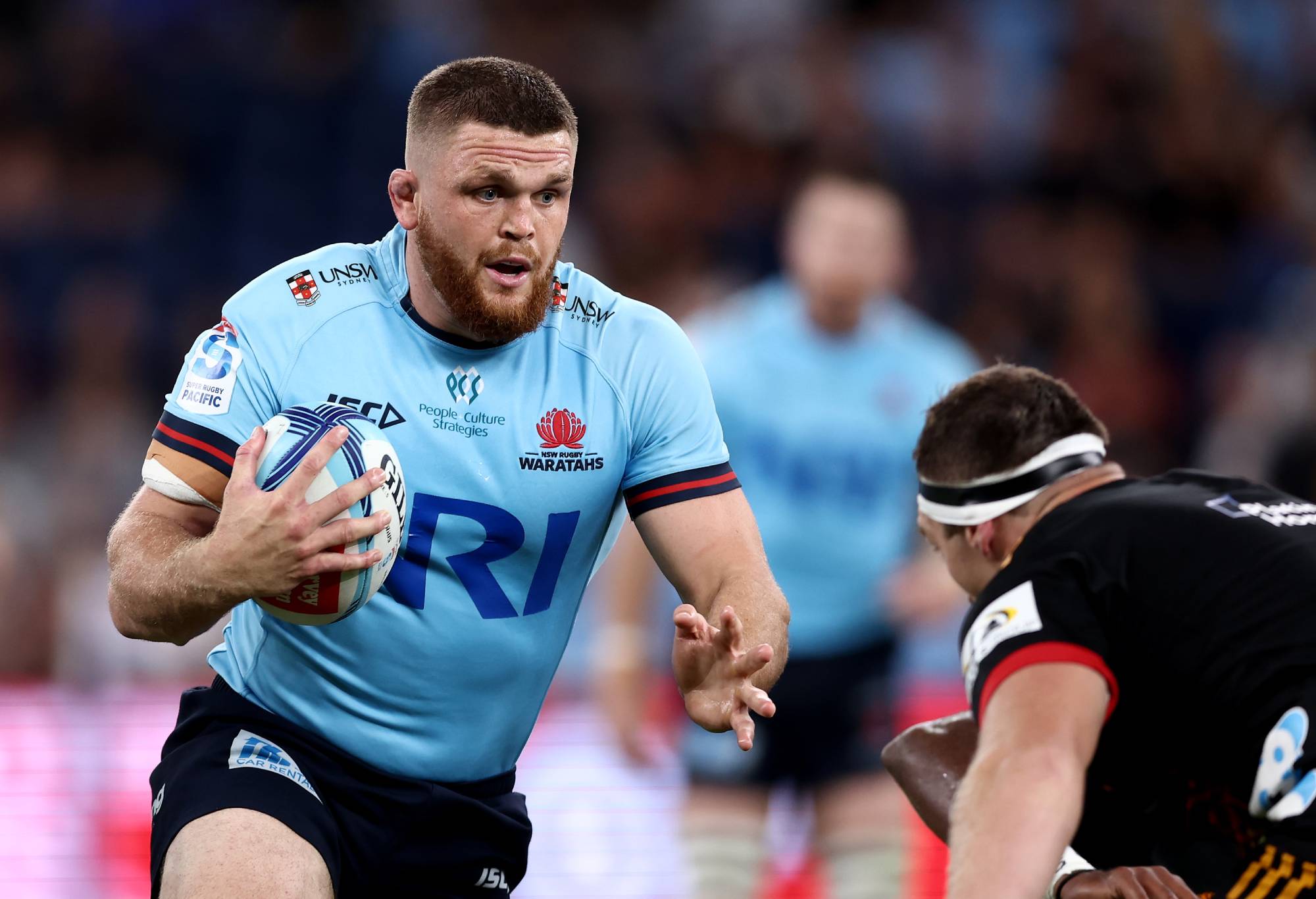Lachie Swinton’s new French connection can have a big payoff for him – and Australian rugby

Lachie Swinton’s days of playing in his homeland appear to be numbered, after The Roar revealed last week the burly breakaway will leave for Bordeaux after next season’s Super Rugby Pacific campaign.
It’s fair to say we have only just gotten used to Swinton’s scowl, protruding brow, vicious hits and (sometimes) unreliable mitts.
It was just under five years ago that Swinton made his professional debut with the Waratahs. A year and bit later he was a Wallaby. Now he’s on the way out.
Will he be just another promising Aussie youngster that got away?
Perhaps. But for all we know, his time abroad could be brief. It could also be ideal for his development. Experiencing European rugby with its long and gruelling campaigns might mould him into the calibre of player he has, at times, promised to be.
Lachlan Swinton with the NSW Waratahs. (Photo by Matt King/Getty Images)
We can be certain that playing rugby in France means he’ll get much needed time on the pitch.
The 26 games per season played in France’s top league dwarfs Super Rugby Pacific’s meagre 14. Add to that any finals, as well as European competition games, and Swinton, if he stays for two years, could amass up to 50 games for Bordeaux.
This is time in the middle Swinton desperately needs after injuries and suspensions limited him to just 11 first-class games over the past two seasons.
The Top 14 is a step down from Super Rugby standard, you say? Maybe oui, maybe non. France has arguably the strongest domestic competition in the world. It is gritty, physical rugby played week in and week out for more than nine months.
With no third tier competition in Australia, Swinton might end up returning to the Shute Shield after the 2024 Super Rugby season if he does not move to France. Is it reasonable, therefore, to argue that playing in France is better for his development than staying at home?
His departure also won’t affect things too greatly in his homeland in the short-to-medium term because the Wallabies and Waratahs have other options at 6.
As of now, Swinton is fourth (at best) in the Wallabies’ No. 6 pecking order. He should probably be higher, but a shoulder injury and a long suspension have set back his career in recent times.
Granted, blindside flanker is not a position of strength for Australia, but Rob Leota, Jed Holloway, Tom Hooper and Lukhan Salakaia-Loto are all capped and capable.
The Waratahs are well covered too. Holloway, Ned Hanigan and Fergus Lee-Warner provide plenty of depth on the blind side of the Tahs’ scrum moving forward. So you can’t really argue that Swinton is leaving Australian rugby in the lurch.
Lachie Swinton wrestles with Pone Fa’amausili (L) during a Wallabies training session. (Photo by Matt King/Getty Images)
Returning in a few years could also be beneficial for him and Australia. With plenty of European rugby under his belt, he he may come back in the prime of his career.
Apart from Swinton himself, nobody knows for sure what his plans are long term – he might flip the bird at Australian rugby while ascending from Kingsford-Smith Airport and choose never to return.
But one can imagine he’d fancy adding to his seven Wallaby caps at some point in the future. He could be a much better player in a few years, too. Already an excellent tackler and proficient lineout operator, Swinton’s time abroad might iron out the wrinkles like ball carrying and breakdown accuracy present in his game.
He could follow the trail of fellow Wallabies Nic White and Andrew Kellaway. They both fled Australia early in their career then came back better players before turning 30.
More recently, Salakaia-Loto, 27, returned after a stint in England, while Brandon Paenga-Amosa (same age) will follow suit in mid-2024. Swinton, for the record, is still only 26.
His career arc is entirely up to him. If Swinton does return – improved, campaign-hardened and with resolved discipline issues – he could come back a different beast to the one that leaves. A beast ready to claim the gold No. 6 jersey once again and rise to be one of world rugby’s dominant enforcers.
Oh, and possibly in time for the Australian-hosted Rugby World Cup in 2027.
